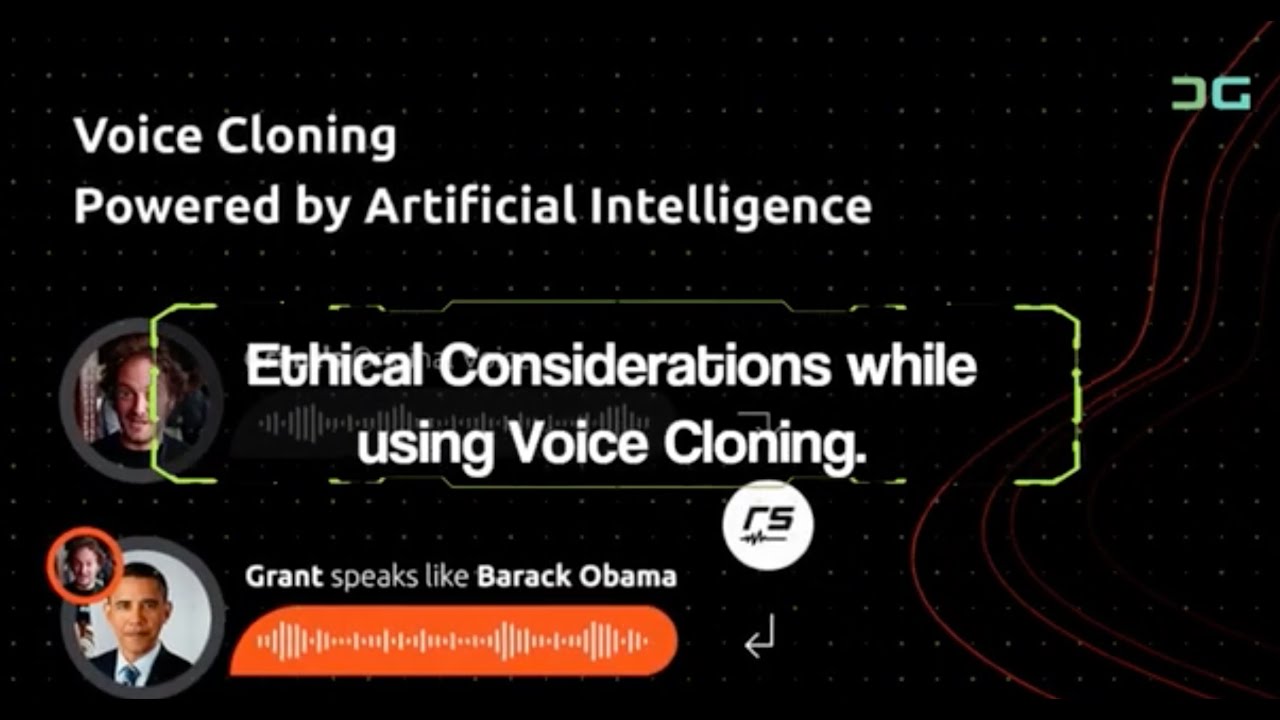
Ethical Considerations while using Voice Cloning
Voice cloning represents a groundbreaking technological advancement that allows for the creation of synthetic voices mirroring the unique qualities of a human voice, including its pitch, intonation, and pronunciation. This transformative innovation grants individuals, businesses, and industries the ability to generate computer-generated speech closely resembling a specific human vocal style.
At its essence, voice cloning employs advanced machine learning algorithms and artificial intelligence (AI) to analyze and replicate the intricacies of a selected voice. The result is a flawless and true-to-life reproduction of that voice, suitable for a wide range of applications.
While voice cloning technology holds great promise for enhancing creativity and productivity, the ethical considerations surrounding its utilization are of paramount significance. As this groundbreaking technology becomes increasingly accessible, it is imperative to contemplate the ethical ramifications and limits that should shape its implementation. Let us explore several pivotal factors pertaining to the responsible deployment of voice cloning:
1. Informed Consent
Obtaining informed consent from individuals whose voices are being cloned stands as a central ethical tenet in the realm of voice cloning. Employing someone’s voice for any purpose, particularly in commercial or entertainment contexts, without their explicit permission can give rise to substantial ethical concerns.
2. Misrepresentation and Deception
The ethical use of voice cloning excludes any form of deception or misleading intent. Employing cloned voices for the purpose of impersonating individuals in fraudulent schemes or pranks is considered unethical and may have legal repercussions.
3. Privacy Concerns
Privacy preservation is of utmost importance. Employing voice cloning to intrude on confidential discussions, capture personal data, or manipulate audio recordings without consent constitutes a breach of individuals’ privacy rights.
4. Commercial Use and Branding
Although voice cloning has the potential to boost branding and marketing endeavors, it must be executed transparently and with ethical principles. Deceptively leading consumers to believe they are engaging with a real person when it is actually a synthetic voice can undermine trust.
5. Legal Compliance
Strict adherence to copyright and intellectual property regulations is imperative. Employing voice cloning to replicate the voices of public figures, celebrities, or copyrighted characters without obtaining proper authorization can result in legal consequences.
6. Emotional Impact
Take into account the emotional repercussions of voice cloning on individuals. Utilizing synthetic voices for content that involves sensitivity or strong emotions, particularly without disclosing their synthetic nature, can be disconcerting and raise ethical concerns.
7. Accountability and Responsibility
Individuals employing voice cloning technology carry a duty to guarantee its ethical application. This encompasses verifying the origins of cloned voices, overseeing the content produced, and taking remedial measures should ethical issues surface.
8. Transparent Disclosure
Incorporating synthetic voices into content, be it in videos, advertisements, or virtual assistants, is ethical when their artificial nature is disclosed to users or consumers. Transparency fosters trust and empowers users to make well-informed choices.
9. Cultural and Social Sensitivity
Voice cloning technology should adhere to cultural and social norms. Employing it to imitate accents, dialects, or languages in a manner that perpetuates stereotypes or disrespects cultural diversity raises ethical concerns.
10. Conforming to Regulatory Requirements
Compliance with applicable laws and regulations is an absolute requirement. Staying informed about evolving legal frameworks pertaining to voice cloning and ensuring adherence is imperative.
In conclusion, ethical use of voice cloning revolves around honoring individuals’ rights, maintaining transparency, and upholding the values of truthfulness and integrity. As technology advances, ethical deliberations must continue to take precedence, allowing us to harness the potential of voice cloning for the benefit of society while mitigating any adverse consequences.
#ai #generativeai #voicecloning #aiethics
Video Source



